Raise Capital
February 27, 2023
Proposed SEC Updates Impact on Equity Crowdfunding
Last week, the SEC’s small business panel met to discuss the challenges and opportunities faced by SMBs raising capital in 2023. One of their main concerns was a series of new rules and amendments the Commission proposed last year. If enacted, these regulations would impose much stricter reporting and diligence requirements on private funds—which would ultimately raise the cost of doing business and cut into the amount of capital available to deploy.
The mission of the committee is clearest stated in Commissioner Jamie Lizgarraga's opening statement to the panel:
"...to advise us on the most innovative ways to better serve truly small businesses and entrepreneurs that is those in our country’s underserved communities that have been largely ignored. To me, these businesses are the true unicorns with an exceptional entrepreneurial Spirit representative of the best traditions of American ingenuity. But they face barriers to accessing Venture and Angel Capital ecosystems and networks and to our Capital markets more generally growth-oriented companies, particularly in the high-tech sector are well supported by the current regulatory system and by the focus of the policy debate in forms like these."
So it's encouraging that the committee is actively listening to how those increased costs, liabilities, and compliance challenges could have an outsized impact on small to medium funds, which typically invest in earlier-stage companies. That means the companies that need investment the most may be the hardest hit—those smaller, riskier bets on new founders without a track record, or without a focus on the industry ‘sweet spots’ like FinTech or SaaS business products.
The SEC has received more than 360 comment letters to date about the proposed changes, including 22 pages of recommendations from the Institutional Limited Partners Association, a global organization with nearly 600 member institutions that manage over $2 trillion in private equity assets.
Critics of the proposed reform are calling it a “gross overreach” and arguing that it fails to take into account the fundamental reasons successful funds work in the first place. Here are the three proposed changes that pose the biggest risk to private funds and the companies they invest in.
Prohibition of “preferential” side letters
Side letters, which are used to supplement, clarify, or amend primary investment contracts, are an essential part of the negotiation process between fund managers and LPs. These letters may include things like liquidation preferences, extra reporting specifically requested by an LP, or confirmation of an advisory committee seat for the investor.
Side letters essentially give advisers the ability to meet each LP in the middle and come to an adjusted agreement both parties are happy with. Under the SEC’s proposed rules, however, fund managers could no longer privately negotiate with investors on a case-by-case basis; instead, they would be required to disclose the exact terms of every side letter to every current and prospective investor in the fund.
This requirement would essentially hobble the ability of fund managers to create more favorable deal terms for investors with specific requirements. Opponents contend that offering extra value to LPs that negotiate for it doesn’t harm the rest of the investors in the fund—it simply gives MPs the edge they need to secure quality investors.
Prohibition of certain fees and expenses
Under the proposed regulations, fund managers would be prohibited from charging LPs for a host of common fees and expenses, including compliance and regulatory costs, expenses associated with licensing, regulation, and registration, and many more.
This is particularly concerning for small- to medium-sized funds, and for advisers who are relatively new to the industry and are working to establish a track record. These types of funds are often spread incredibly thinly when it comes to working capital (i.e., money to put towards operational expenses, salaries, diligence, and so on).
Some of these smaller funds might not be able to survive at all with a greatly increased financial burden. Others might be significantly slowed down due to reduction of staff. This would also make it much harder for new advisers to start their own funds—and considering that small funds tend to invest in companies at the earliest stages, the trickle-down effects could cause a lot of damage to the entire ecosystem’s capital funnel.
Increased personal risk for advisers
Compared to other markets, private equity is a uniquely fluid ecosystem—or you might say it’s uniquely human. Private funds are in competition for the best deal flow, which can’t often be won by simply writing the biggest check. Instead, the most sought-after companies build out their cap tables based on the value-add a private equity fund can provide—whether that means strategic counselling, connections to their network, or a clear path to successful follow-on funding rounds.
This is, in part, why private funds are able to achieve such high ROIs—and it’s key to the way these funds operate. Naturally, though, it can make the relationships between investors, founders, and advisers a little fuzzy in the event that a portfolio company goes under.
In order to protect advisers, LPs can only sue fund advisers for gross misconduct (think: intentionally misleading investors, knowingly creating conflicts of interest, mishandling funds, etc.). If the SEC’s proposal passes, however, advisers/managing partners could be held personally liable for ordinary negligence—subjecting MPs to virtually unlimited personal liability.
In essence, this would severely impact most advisers’ risk tolerance and even prevent them from providing that specialized value-add to their portfolio companies.
This would really cause me and the members of my team to think twice about how involved, how helpful, and how ‘in the weeds’ we want to get with these founders… I think it would impact our decision-making to the detriment of [our portfolio] companies being successful. Many of them come to us because we have the experience across hundreds of investments on how to help advise them on these issues. They’re really looking for someone who they trust to be a good sounding board. - Charles Hudson, MP & Founder of Precursor Ventures
The SEC is currently reviewing the hundreds of comments and recommendations it has received; meanwhile, VC activity has already dropped precipitously in the past year. Whether the proposed rules are enacted or not, increased scrutiny by regulators—and uncertainty about the future for small or newly-created funds—could be contributing to the rough traditional funding climate.
The good news is that there’s an alternative way for those companies to raise the capital they need: equity crowdfunding. While VC deal count dropped by 14% in 2022, equity crowdfunding grew by 16%—and if the JOBS Act 4.0 passes this year, that growth could accelerate even further.
Not only does equity crowdfunding provide an opportunity for companies at any stage to access growth capital… it also boasts a number of different benefits from traditional VC:
Community building: Equity crowdfunding empowers entrepreneurs to turn their fans and customers into shareholders. Want to create a customer for life? Invite them to share in your future success. Every company today has a list and that list can be monetized not just for sales, but for capital too. Don’t underuse your resources.
Marketing & exposure: By raising from the crowd, companies can drive traffic and engagement to both their raise and their business. It’s a win-win that can expand a company’s network, boost sales, and ultimately drive more investment volume overall.
Founder-friendly terms: Founders who raise via equity crowdfunding have more freedom to set their own terms, including the type of equity offered, the amount of equity offered, the valuation of the company, and the terms of the investment.
Over 80% of founders surveyed in the USA said they would consider using equity crowdfunding to fund their business. The theme is catching fire.
In short, there’s no reason for companies seeking capital to wait around hoping that the institutional and venture funding climate improves. With equity crowdfunding, companies have the power to raise capital from their own communities right away—and we’re here to help. Our industry-leading tech can help startups of all sizes raise capital, from seed to IPO, using a seamless cloud-based platform custom-built for their specific needs.
Get started, learn more, or refer a company today. Just click here to book a demo.
If you want to watch the whole Small Business Advisory Committee hearing, the recording is here.

Your submission has been received. We will reach out to you via email to schedule a call.
Oops! Something went wrong while submitting the form.



.png)
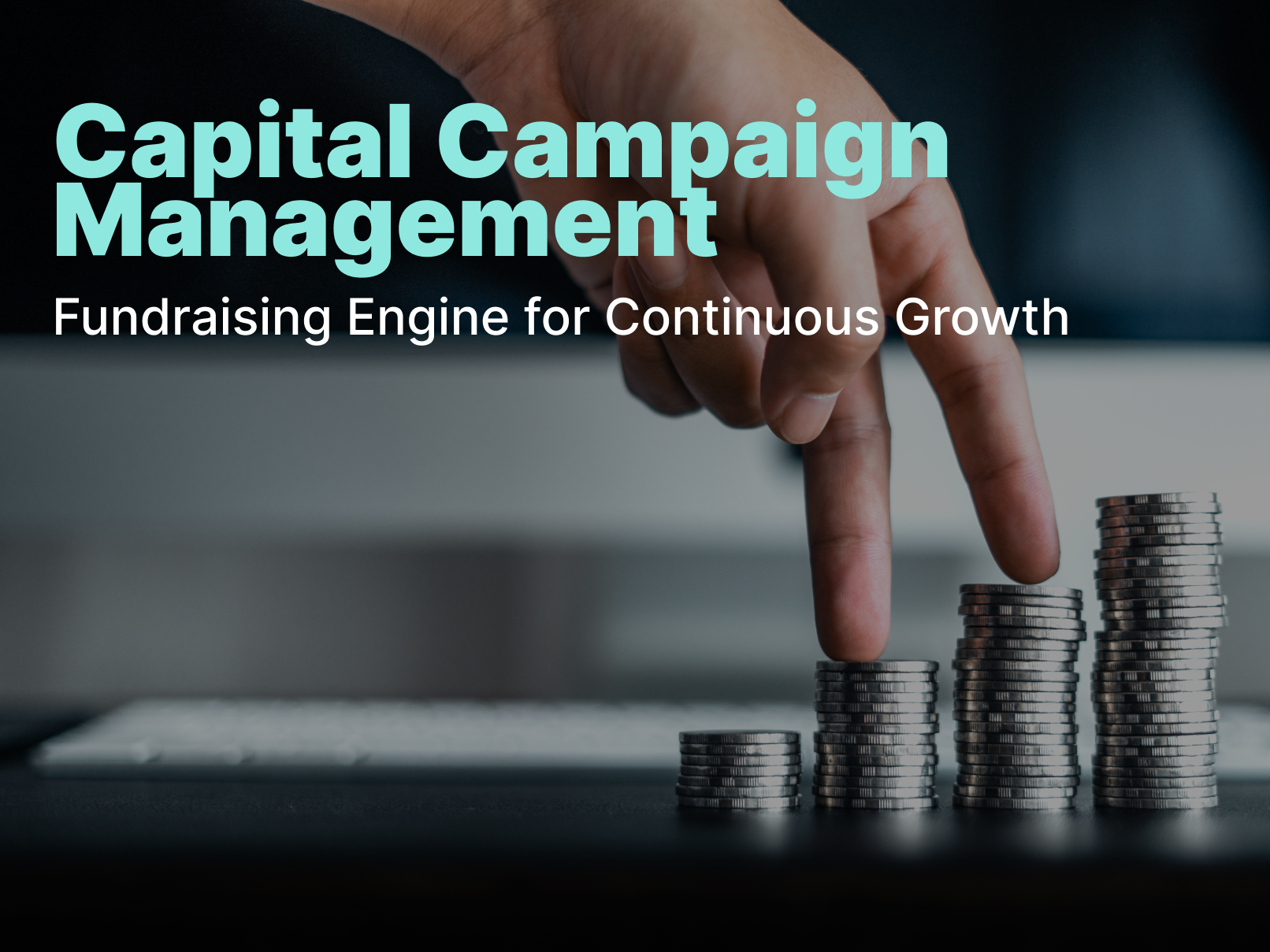
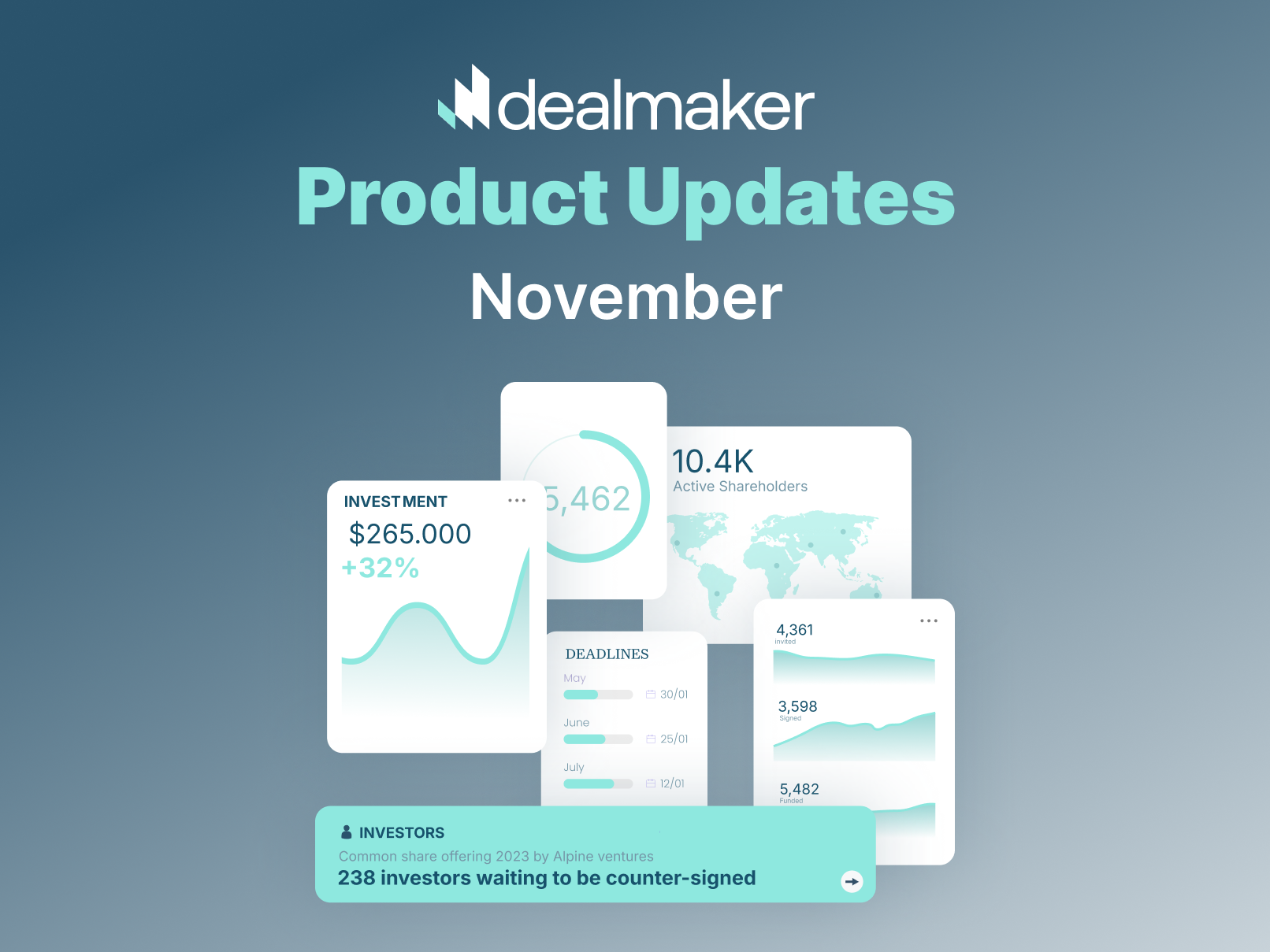
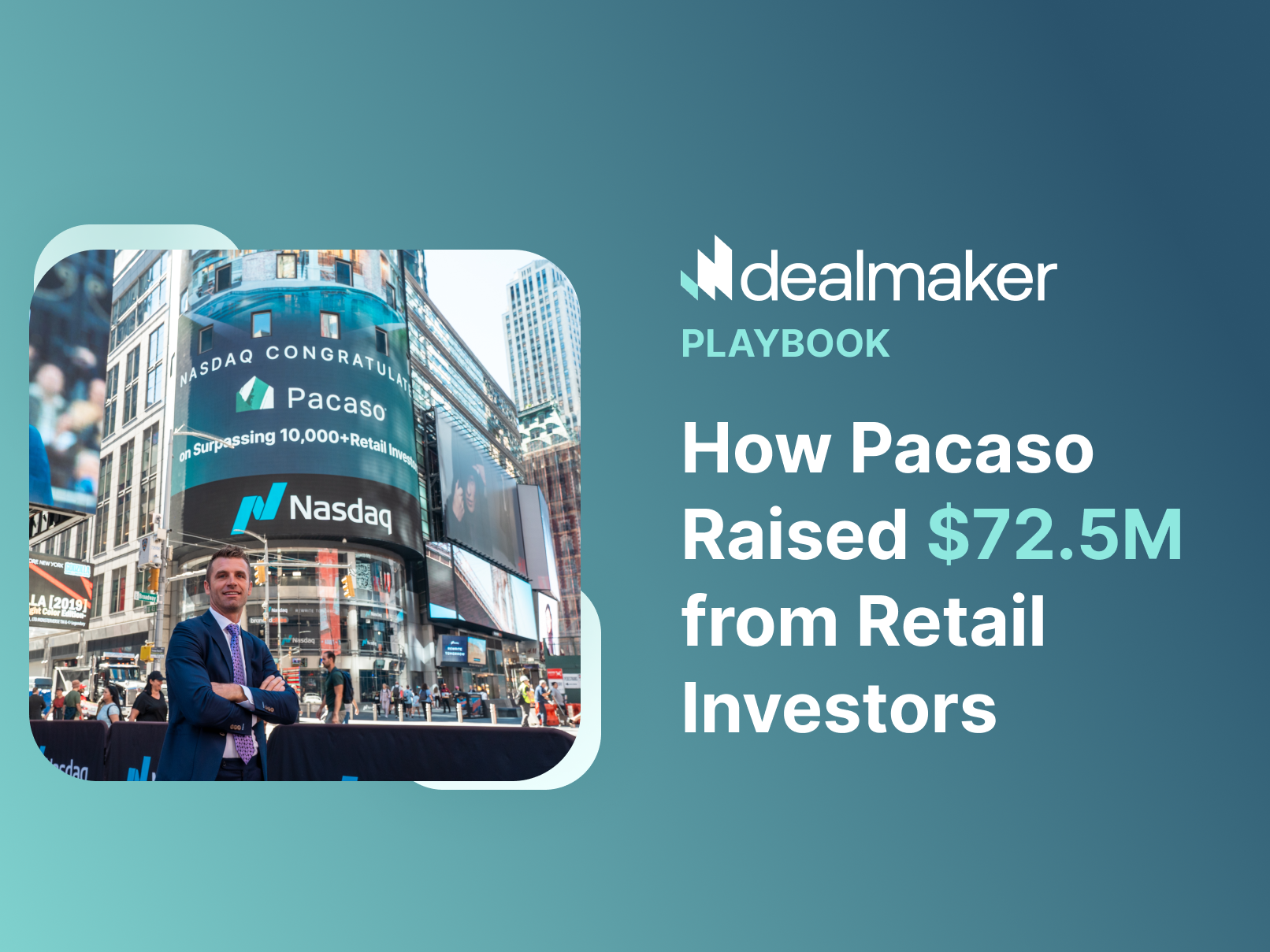
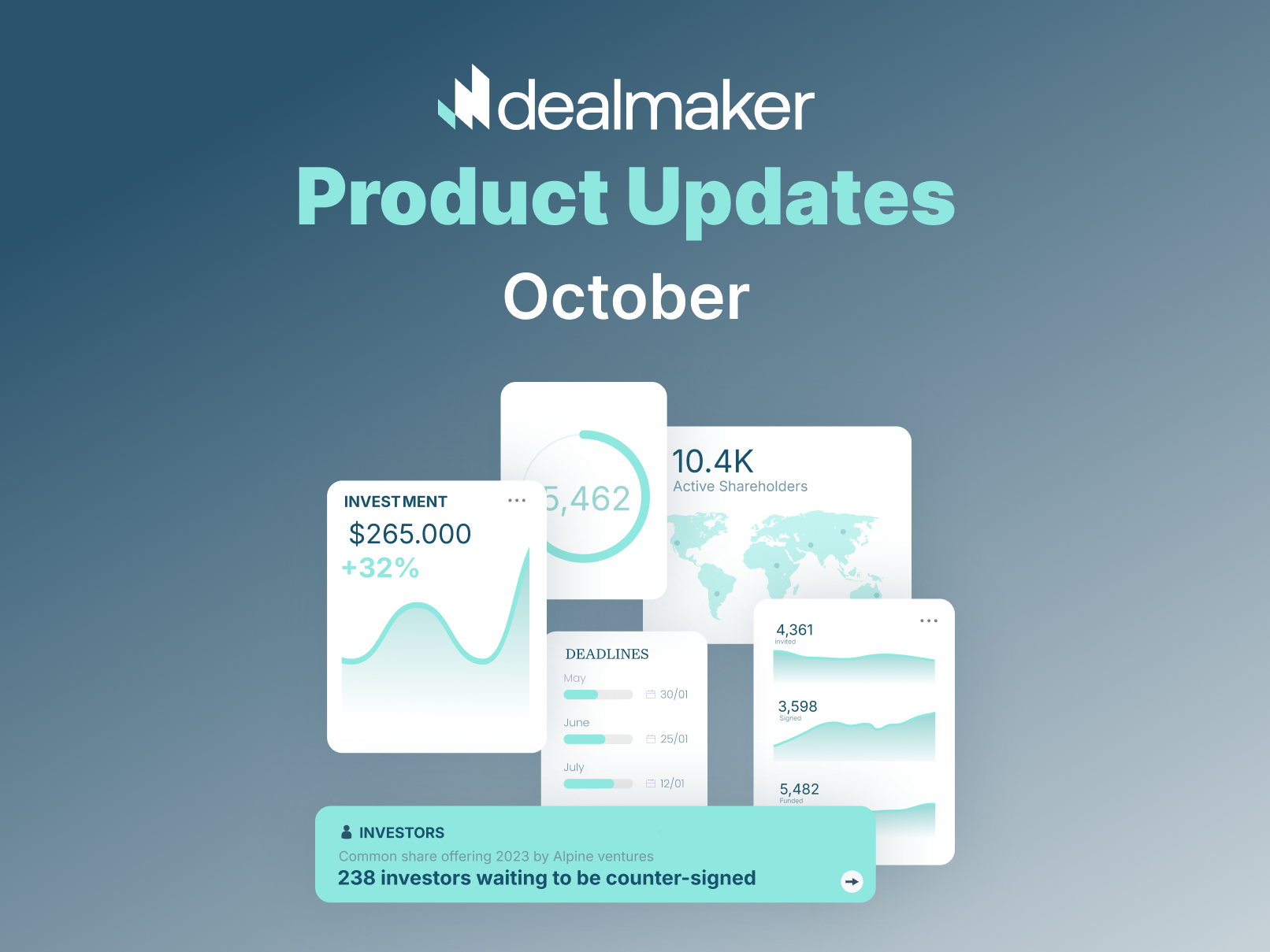
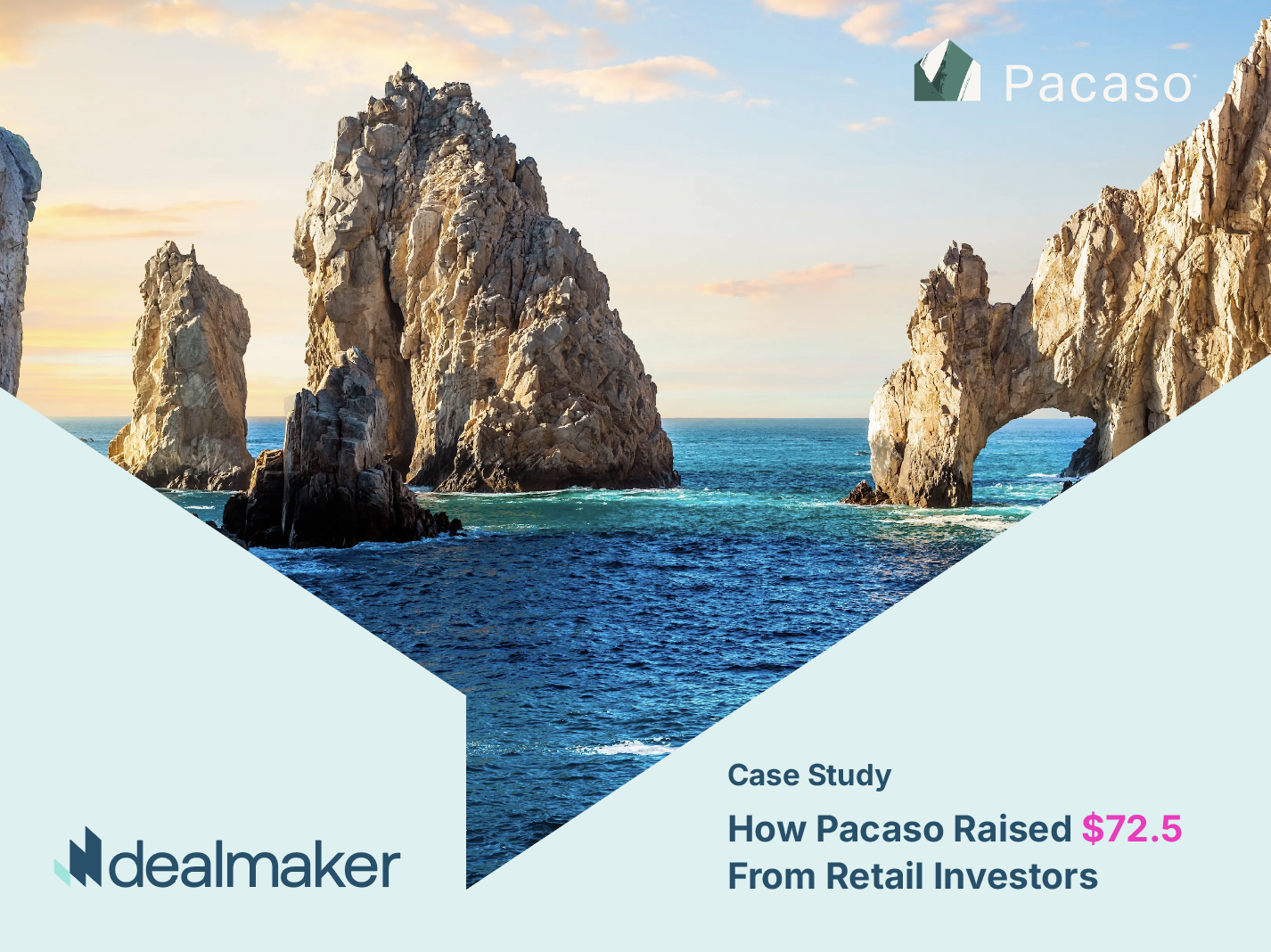
.webp)
.webp)
.webp)
%20(1).webp)
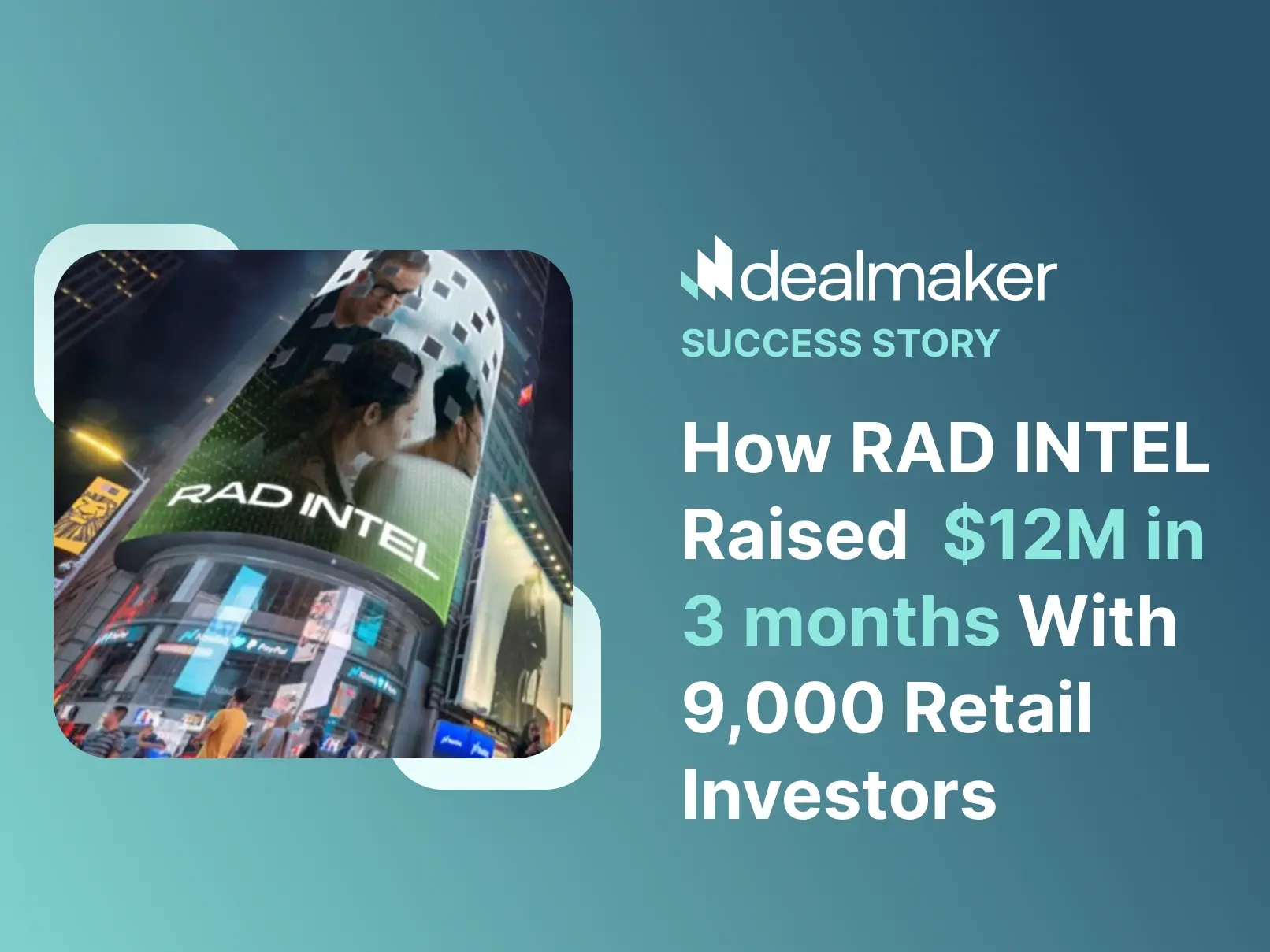
.webp)